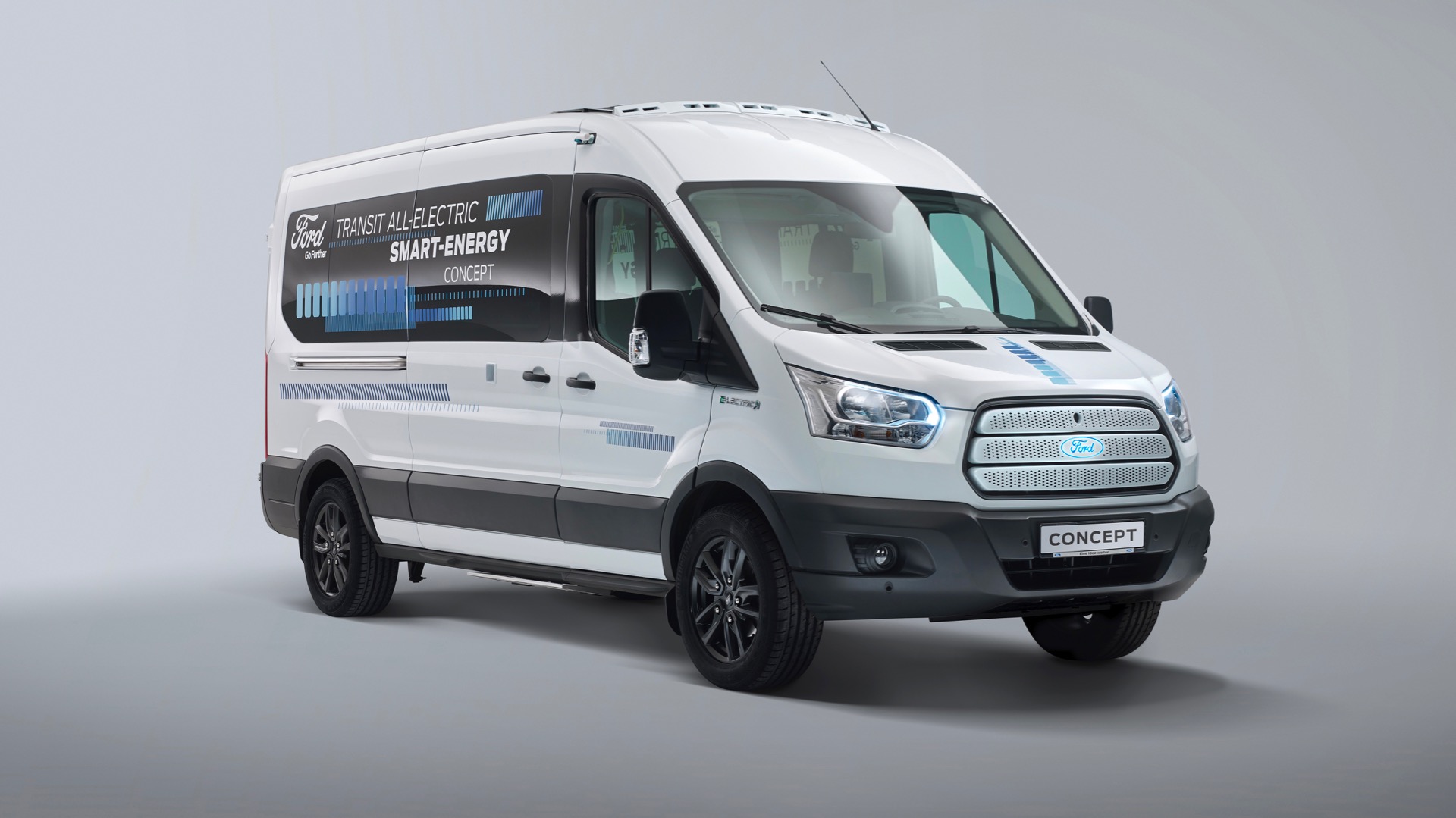

Ford’s “Mustang-inspired” electric crossover may be getting most of the attention, but the Blue Oval wants to use electric powertrains in other types of vehicles as well. Ford’s European division just unveiled the Transit Smart Energy Concept, an all-electric version of the ubiquitous Transit van, and Ford said it was designed to show off new ways to increase the range of electric vehicles.
Most of Ford’s efforts to boost range have been centered around reducing the energy required to heat the interior in cold weather. An electric powertrain doesn’t generate nearly as much heat as an internal-combustion engine, so power must be drawn from the same battery pack that powers the electric motors. This can reduce range by up to 50 percent in cold weather, according to Ford.
That problem is magnified in a 10-seat passenger van like the Transit Smart Energy concept. It’s bigger and heavier than a passenger car, with much more interior space to heat. Vehicles like this are often used as shuttle buses, requiring them to make frequent stops, and every time the doors open to let passengers on or off, cold air gets in, making it harder to keep the interior warm.
To compensate, Ford equipped the Smart Energy concept with a heat pump that uses waste heat from the powertrain. It reduces heating-system use by 65 percent, resulting in a range boost of up to 20 percent, according to Ford. A divider between the passenger door and seating area, insulated rear floor and roof, and double-glazed windows are designed to reduce heat loss. The power-sliding passenger door also opens only halfway and is synced with the HVAC system’s blower, which turns off when the door is open to help stop warm air from escaping.
The van also features heated business-class seats, which Ford believes will reduce the amount of energy needed to keep the interior comfortable. The seat heaters, as well as interior lighting and wireless phone chargers for passengers, are powered by six roof-mounted solar panels, reducing electricity demand from the battery pack.
Ford plans to begin road testing the van later this year, following the completion of wind-tunnel tests. The automaker would not discuss production plans. Ford currently manufactures Transit-based electric delivery vans for Germany’s Deutsche Post DHL and has shown prototype plug-in hybrid versions of its European-market Transit Custom and Tourneo Custom vans. In the United States, Ford seems to be prioritizing electric passenger cars over commercial vehicles, with the “Mustang-inspired” model expected to the first out of the gate in 2020.